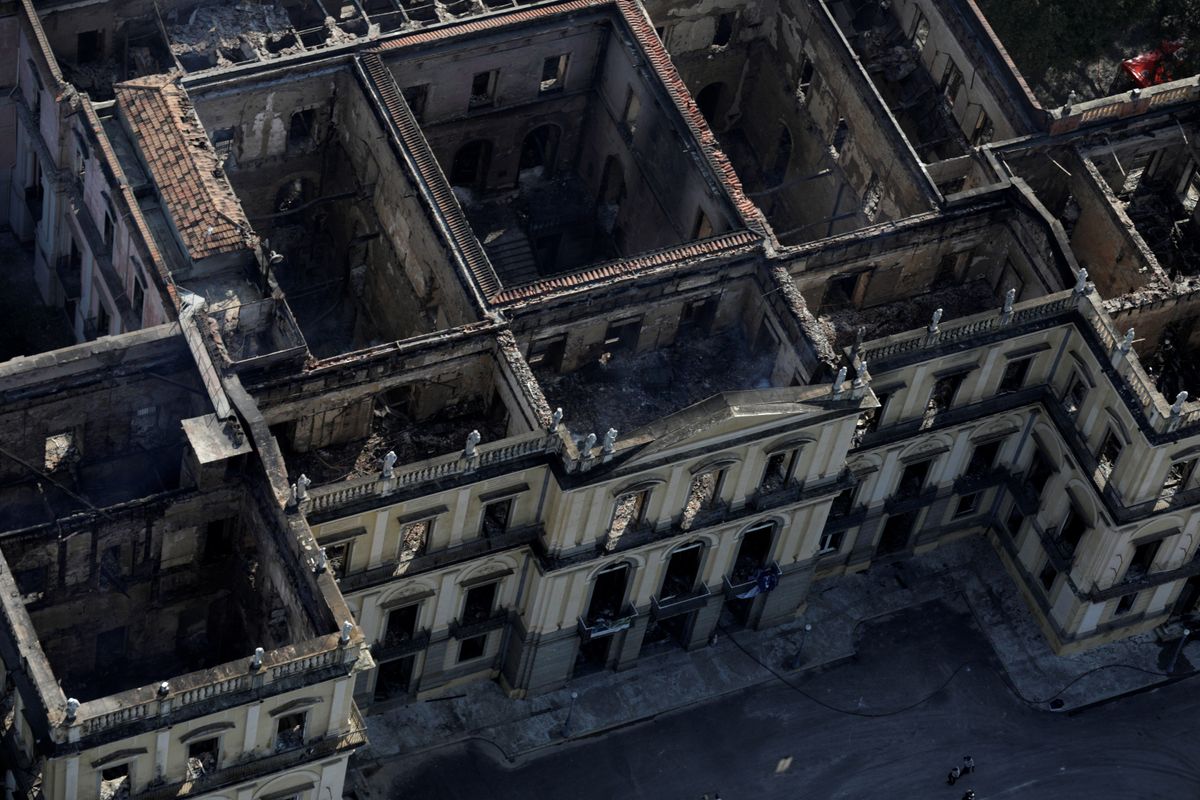Over the weekend in Rio de Janeiro, a fire tore through Brazil’s vast National Museum, destroying nearly all of its 20 million specimens. Among the items feared lost are a priceless collection of Egyptian and Andean mummies, artworks from Pompeii, a dinosaur skeleton unique to Brazil, rare records from the country’s imperial era, hundreds of audio recordings of extinct indigenous languages, millions of insect and marine specimens, and the oldest human fossil found in Latin America – a skeleton named Luzia.
The museum’s directors had warned for years about inadequate fire systems and general funding shortfalls. Sharp budget cuts amid Brazil’s recent economic tailspin hit the country’s cultural institutions particularly hard. At one point, researchers at the museum had to resort to crowdfunding to deal with a termite infestation in one of the wings. A $5 million renovation project was finally approved this summer, but it wasn’t set to begin until after the presidential election in October.
The destruction of Latin America’s largest natural history museum is an incalculable cultural loss for Brazil, for the region, and for science generally. But the tragedy offers a few political angles to consider as well.
Brazil’s anguish in flames: On Monday, as officials bickered over responsibility for the fire, hundreds of anti-government protesters demanding accountability clashed with riot police outside the building’s smoldering remains. Meanwhile, social media lit up with recriminations – some people took aim at specific parties and politicians for poor funding or bad decisions, but most decried the broader bonfire of corruption, malfeasance, and elite detachment that has plunged the country into its worst political and economic crisis in memory.Nobody likes funding cuts, of course, but when people believe that the rich and powerful are stealing so much of their money to begin with, it’s doubly galling to see a vulnerable cultural institution go up in flames just years after the government has spent billions on international sporting events of dubious economic value.
“We spent billions on the World Cup,” a friend from Brazil wrote to me on Tuesday, “but we can’t fund or protect the little legacy we have for our own children?”
Tragedies that throw a light on rotten systems: In Brazil as elsewhere, the effects of corruption and negligence are pernicious but often invisible. They spread like a cancer through society – corroding institutions, eroding trust, blotting out opportunities for the most vulnerable.
But every so often their effects result in a spectacular disaster – like the fire in Rio, or the recent collapse of the Morandi bridge in Genoa, or the Grenfell tower fire in London last summer – that provides a focal point for popular anger and government responsibility.
It’s worth remembering that Brazil is just weeks away from a pivotal presidential vote in which voters’ rage at traditional politicians is one of the few things uniting a deeply polarized country. The museum fire will further inflame that sentiment.
A metaphor for our times: As the fire raged, a small group of researchers and scientists rushed headlong into the flames in a last bid to save whatever specimens, artifacts, paintings, and papers they could. “We were thinking of the researchers who came before us,” one of them said, “and what we saved will permit the continuity of our colleagues’ research.”
At a time when science, objectivity, and expertise are under assault by politicians who thrive on misinformation and “alternative facts,” it’s hard to think of a more compelling image than men and women risking their lives to rescue the most fragile specimens of scientific research from destruction.


















